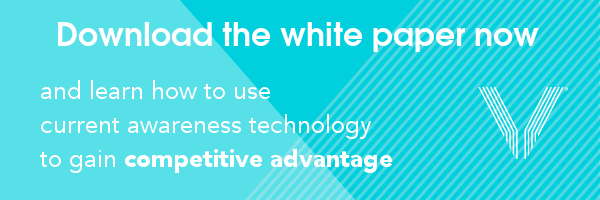Share this
Librarians and privacy in the age of Cambridge Analytica
April 11, 2018
Have you deleted your Facebook account? Be honest. Have you even reviewed your privacy settings on any other social media site, let alone Facebook?
A few years ago, I wrote about the Ashley Madison scandal with a focus on the dark web, invasion of privacy and reputation management. Unlike the current Facebook scandal, the information leaked had a salacious, blackmailable aspect, and consequently those unaffected were left shrugging their shoulders. After all, if you go on an adult site and provide potentially embarrassing personal data, that is your responsibility.
How private is Facebook?
On the other hand everyone assumed Facebook was safe and relatively benevolent. How could a free site that brought us the ability to poke and defenestrate friends cause pain or distress by misusing our data? How could cautious people restricting information about their personal lives realise that data on apps connected with Facebook was going to be stored or harvested wholesale?
But as a horrified friend found out, contained within the personal data request that he made, there were many pictures and messages from a previous relationship. He’d assumed that when he deleted them, as an honest good faith gesture to the other person, they were gone forever.
We might ascribe this response to naivety; after all, smoking was not considered a health risk for a long time. For years, we’ve agreed to a basic deal: we give private companies data, they provide ‘free’ internet services. Ironically, Google Glass failed at the time as it was thought to be to be an invasion of privacy - however people now voluntarily wear fitness bands which monitor their every move and sleeping moment. We seem to apathetically welcome the connection of all our data, regardless of where it originated.
What will be the next social media scandal?
The Facebook scandal is just the tip of the information iceberg, and who knows which social media site will be next. And it will happen. It is ironic that the tighter Data Protection Regulations are coming into force just as their reason for existence made the headlines.
Some cynical commentators could suggest that GDPR may not have been so widely reported if it hadn’t been for Cambridge Analytica. Regardless, organisations would still be obliged to ensure compliance simply because the fines for breaches are deliberately huge sums.
As I wrote previously, this new data focused landscape presents an opportunity for information professionals because our ethics and expertise are more important than ever. If Nick Poole1 of CILIP is to be understood, librarians need to ensure that the triad of state, company and individual behave in a transparent and accountable way.
Both private companies and government bodies have proven to be untrustworthy, and alarmingly libraries and information centres are happy to let users access social media from public terminals where data security cannot be guaranteed2.
We have a responsibility for our own privacy
But I would suggest that users have to take responsibility for their actions. Like your doctor, data experts can only advise. This takes me back to my opening question. Despite the security breaches, storage of personal messages, and targeted advertising, I have not deleted my Facebook account.
As a qualified information professional who should know better, this pertinent tweet said it all: ‘I would like to think that I am privacy literate but I am fully aware that I don't know what I don't know. #uksg18’. I would be interested to know how many information professionals have deleted any personal social media accounts.
Tell us why you have - or haven’t!
Share this
- July 2025 (3)
- June 2025 (3)
- May 2025 (2)
- April 2025 (1)
- March 2025 (1)
- October 2024 (1)
- July 2024 (1)
- June 2024 (2)
- May 2024 (2)
- April 2024 (3)
- March 2024 (3)
- February 2024 (4)
- January 2024 (2)
- December 2023 (1)
- November 2023 (2)
- October 2023 (2)
- September 2023 (1)
- August 2023 (3)
- July 2023 (5)
- June 2023 (2)
- May 2023 (2)
- April 2023 (4)
- March 2023 (1)
- February 2023 (1)
- January 2023 (2)
- November 2022 (2)
- September 2022 (2)
- August 2022 (2)
- July 2022 (1)
- June 2022 (1)
- May 2022 (2)
- April 2022 (3)
- March 2022 (1)
- February 2022 (2)
- December 2021 (2)
- November 2021 (2)
- October 2021 (2)
- September 2021 (2)
- August 2021 (2)
- July 2021 (2)
- June 2021 (2)
- May 2021 (1)
- April 2021 (2)
- March 2021 (1)
- February 2021 (3)
- January 2021 (2)
- November 2020 (3)
- October 2020 (1)
- August 2020 (2)
- July 2020 (4)
- June 2020 (1)
- May 2020 (1)
- April 2020 (2)
- March 2020 (2)
- February 2020 (3)
- January 2020 (1)
- December 2019 (2)
- November 2019 (1)
- October 2019 (1)
- September 2019 (1)
- August 2019 (3)
- July 2019 (3)
- June 2019 (3)
- May 2019 (2)
- April 2019 (1)
- March 2019 (2)
- February 2019 (3)
- January 2019 (3)
- December 2018 (1)
- November 2018 (2)
- October 2018 (2)
- September 2018 (1)
- August 2018 (2)
- July 2018 (1)
- June 2018 (2)
- May 2018 (3)
- April 2018 (3)
- March 2018 (1)
- February 2018 (3)
- January 2018 (1)
- November 2017 (1)
- October 2017 (1)
- July 2017 (1)
- April 2017 (2)
- March 2017 (3)
- February 2017 (1)
- January 2017 (1)
- November 2016 (2)
- October 2016 (1)
- September 2016 (1)
- August 2016 (2)
- June 2016 (1)
- May 2016 (1)
- April 2016 (1)

